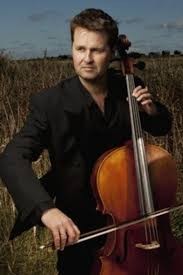|
|
Wednesday, April 30, 2014 
04:45 PM - 05:30 PM
| Level: | Business/Strategic
|
Music is a universal part of humanity that bridges cultures and time, and every person has a built-in metronome—their heartbeat. Music is a powerful expression of personal emotion, as well as cultural and generational identity. It is unparalleled as a memory aid, it wordlessly conveys story, and it promotes societal coherence as people share it. It might even be said that music sustains life. Yet to become proficient as a musician is a long, arduous, sometimes-solitary, but ultimately satisfying journey.
Music and data share many qualities. Each provides interpretation, understanding, description, identity… you can tell any number of stories with the same music or data in just the same way that a textual phrase (e.g., I want to dance with you) changes meaning depending on which word receives the greatest emphasis. Music is also a storyteller. As Philip describes…“Music does this through dynamics—anacrusis (lead in, prologue), crusis (climax), and metacrusis (follow-through, epilogue)—through pitch and through rhythm.” While Goethe described architecture as “frozen music” then in many ways the reverse is true…music as liquid architecture comes to new life with each interpretation and playing, and our emotional connection to it changes with each variation.
Philip Sheppard joins us to speak about the glories and potential of music, and to share the artistic metaphors that might be drawn to advantage in our world of data and software. He also comes to implore the standard-bearers of the IT world to incorporate, not music per se, but analogous richness and expression into their endeavors.
Philip Sheppard is prolific film and theatre composer, virtuoso cellist and improviser as well as pioneer of the electric cello. He is also a Fellow of the Royal Academy of Music (awarded for lifetime achievement in the arts) and has collaborated with numerous rock artists.
He completed the mammoth task of re-scoring & recording all 205 of the world's National Anthems (with the London Philharmonic Orchestra) for the London 2012 Olympics. These versions have been approved for the next 25 years of Olympic events.
His early solo albums, “The Glass Cathedral” and “The Diver in the Crypt” set him on the path to major film commissions and collaborations with major rock artists including David Bowie, Jarvis Cocker, Jeff Buckley, Scott Walker, Suzanne Vega, UNKLE and Pretty Lights. He recently collaborated with Queens of the Stone Age on their no.1 album Like Clockwork.
Philip has scored many major feature films, many of which have premiered at the Sundance Film Festival. The first of these, In the Shadow of the Moon (2007), won the audience award at Sundance (as well as awards at the Boulder, Florida, Indianapolis and Sedona film festivals). This success was followed by the award-winning Sergio, Manhunt (Emmy award for best Documentary), Bobby Fischer against the World, First Orbit (to date, the most-watched feature film on YouTube), The Tillman Story and Love Marilyn (with Uma Thurman, Glenn Close and Viola Davis).
Philip has also written many stage works including In-I for Juliette Binoche, and Sacred Monsters for the ballerina Sylvie Guillem. He composed 'Cloud Songs' for his friend the astronaut Cady Coleman who took the album into space to play during her 6-month posting on the International Space Station.
Future projects include a five symphonic scores for BBC’s The Human Universe, a documentary feature with Steve Buscemi and a major new symphonic work to be premiered at London’s Royal Festival Hall.
|
|
|



